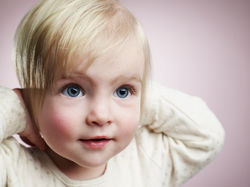FreePlay
Perfect for children (walkers-5yrs) who just are looking to explore the world around them without the commitment of a structured class. THERE'S NO NEED TO BOOK FOR FREEPLAY - this is a casual class, for just $9.00 per child, per session.
FreePlay classes are Thursdays 10.30am til 11.30am starting from 1st of February 2024.
KinderGym
Perfect for little ones aged 2yrs-5yrs who are keen to learn the fundamental movement skills with their adult alongside supporting them and assisting them through the exercises.
KinderFun
Perfect for children 3-5yrs who are ready to work towards the next step of gymnastics classes without the support of a parent/guardian. A great way to introduce the little ones to the structured classes that will teach them to roll, swing, climb and jump.
These classes all fall under the banner of KinderGym.
KinderGym provides a more structured learning experience for children 2-5 years emphasizing on gross motor skills, agility and spatial awareness. It is founded on child development principles and is the first of the three sequential programs within LaunchPad. It is specifically designed as a movement-based learning experience for children aged between 0 - 5 years old. The program promotes the child as the key focal point and involves active participation of the child's mother, father or carer.
Children need as many opportunities as possible to optimise brain development and increase physical potential before they go to school. KinderGym provides a safe environment for children to experience a wide-range of movement activities and be encouraged to think, create, construct and solve problems with their own bodies. Educational research tells us that children learn best through exploring and discovering their abilities through physical activity.
What is KinderGym?
As a program that is specifically designed for children aged 0-5, KinderGym encourages you and your child to interact in a fun and engaging environment while developing fundamental life skills.
KinderGym promotes physical literacy in children through the following philosophies:
-
Positive movement experiences can influence a child’s outlook on physical activity for life.
-
It is possible to assist in the development children by providing an environment where the child may creatively explore and practice skills safely in order to increase confidence and self-esteem.
-
Providing a fun environment where a child and parents or caregiver can play together is worthwhile.
-
Providing opportunities to develop the physical, cognitive, social and psychological skills create a foundation for an active life.
Your child is provided with a safe and nurturing environment to learn and play under the encouragement of fully accredited coaches.
What is Physical Literacy?
Physical literacy is about helping your child develop the skills, knowledge and behaviours that will give them the confidence and motivation to lead active and healthy lives.
Focusing on ongoing growth, physical literacy involves holistic lifelong learning through movement and physical activity. It delivers physical, psychological, social and cognitive health and wellbeing benefits for people of all ages.
The Australian Physical Literacy Framework, developed by Sport Australia, activates this commitment through the establishment of a common language to support all Australians develop their physical literacy, at every stage of life.
Physical literacy provides:
-
physical skills and fitness
-
the attitudes and emotions that motivate you to be active
-
the knowledge and understanding of how, why and when you move
-
the social skills to be active with others.
What each Physical Literacy Domain area means:
-
Physical – Movement skills that allow a person to move (on land, water, snow or ice) from one place to another
-
Psychological – Positive emotions and experiences derived from movement and physical activity
-
Social – Moral principles that govern a person’s behaviour, relating to fairness and justice, inclusion, equity, integrity and respect.
-
Cognitive – Factual knowledge a person can understand and convey; often important in recognition, recall and planning







